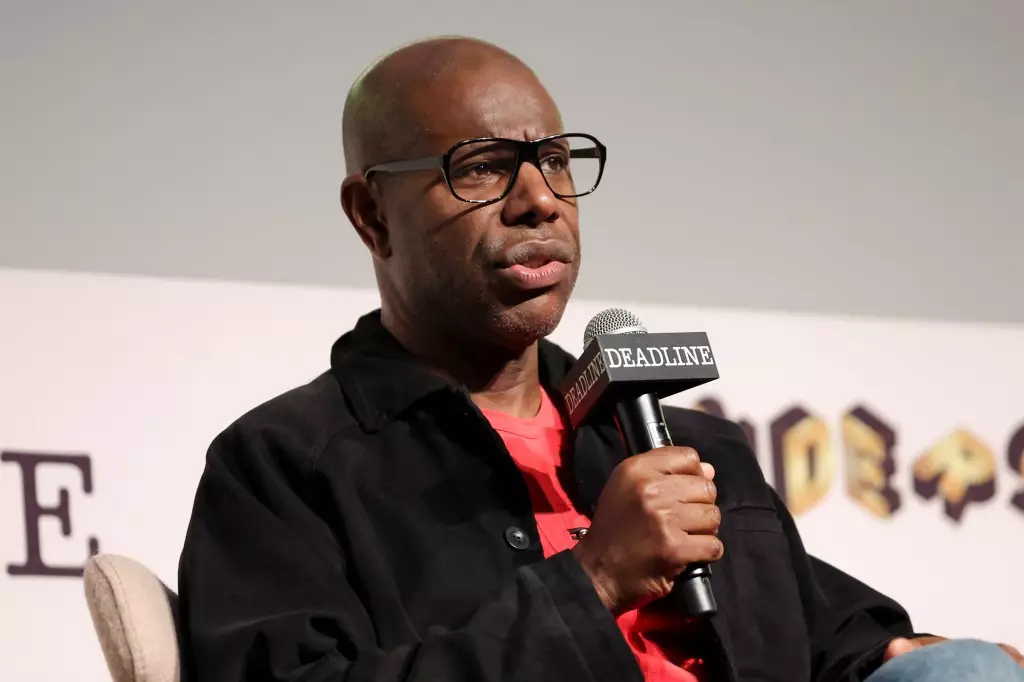As decades roll on, filmmakers continue to explore fresh and impactful interpretations of historical narratives. World War II, a period steeped in complexity and trauma, remains a fertile ground for cinematic exploration. Most recently, acclaimed director Steve McQueen has ventured into this realm, presenting a narrative that centers not on soldiers or strategies, but on the innocent perception of a child. McQueen’s latest piece, *Blitz*, showcases how storytelling can elicit empathy and understanding by offering a viewpoint that is often overlooked.
In an industry where historical events have often been told from traditional adult perspectives fraught with adult concerns, McQueen seeks to redirect the audience’s gaze. He emphasizes the perspective of a child, intertwining innocence with the weight of wartime experiences. This innovative approach serves as a compelling reminder of how daily life is irrevocably altered during times of conflict, but through a lens that captures wonder instead of despair.
The choice to follow the journey of a nine-year-old boy named George, played by Elliot Hefferman, allows McQueen to explore the consequences of war through an innocent filter. George is sent away from war-torn London to the countryside by his mother, Rita (portrayed by Saoirse Ronan), in a bid for safety. Yet, the young boy’s fierce determination to return to his family propels him into a series of encounters that reveal the raw and often harsh realities of his environment. McQueen articulately remarks on the loss of childlike curiosity in adults, a poignant observation that threads through the film’s narrative. His creative vision prompts viewers to reassess at what point in life their innate sense of wonder diminishes in the face of harsh realities.
In recounting memories of his daughter’s innocent joy in autumn leaves, McQueen illuminates a stark contrast between childhood and adulthood. The filmmaker challenges us to reflect on our own loss of perspective and encourages viewers to reconnect with the simplicity of seeing the world through a child’s eyes. In George’s story, audiences are invited to explore the war is not just about battles and politics, but also about the personal struggles and emotional landscapes of those often left unheard.
To provide authenticity to the film’s depiction of wartime London, Saoirse Ronan underwent intense dialect coaching to master the East London accent, commonly known as Cockney. This dedication to accurately portraying the cultural nuances of the time enhances the film’s immersive quality and reflects the working-class experiences of the era. Ronan’s insights reveal the richness of language, shedding light on how accents encapsulate personality and heritage, not merely a mode of communication.
The portrayal of women in wartime is another critical aspect of McQueen’s cinematic vision. Ronan notes that despite the turmoil of the time, women often presented themselves with a degree of dignity and grace, showcasing resilience against the backdrop of their struggles. The film thus becomes not just a reflection of war through the eyes of a child but also an exploration of maternal strength and the sacrifices women made to protect their families.
*Blitz* promises to bring a new emotional depth to the retelling of World War II, reinforcing the notion that the stories of war are not solely the realm of the heroic or the political. McQueen’s unique storytelling approach underscores the undeniable truth that every conflict affects countless individuals, often in ways that are lost amid broader narratives. By focusing on a child’s journey, he exposes the raw and fragile nature of humanity amidst chaos.
As audiences eagerly await the release of *Blitz*, there is no doubt that McQueen’s reimagined perspective will challenge traditional assumptions about war stories, inviting a deeper empathy and understanding. In a world that often rushes toward resolutions, this film encourages a pause, a moment to reflect on the innocence that war so often seeks to shatter.

